My work placements…
Make a habit of regularly observing the universal process of change: be assiduous in your attention to it and school yourself thoroughly in this branch of study: there is nothing more elevating to the mind.
– Marcus Aurelius
(INTRAC Occasional Papers Series No: 43 – Leaders Changing Inside-Out: What Causes Leaders to Change Behaviour? Cases from Malawian Civil Society by Rick James)
Nthawi apita!
(literally “time he/she goes”, just means time flies!)
Now that I have some more time on the Internet, all I can say is, ‘Wow!’
I cannot believe I’ve been in Malawi for over 9 weeks. Only 6 weeks left, and I’m definitely feeling a time squeeze. I haven’t even explained what I’m working on – which is largely because I needed until now to figure that out! But first, without further delay, here is some input on the answers to those proverbs and riddles.
For the riddle, “It is a house with a door that when you open, it is open, but when you close, it is never closed,” is…Mtedza (groundnut). You open a peanut shell and it is open forever. (I didn’t get the answer initially either, but it turns out they learn these riddles in school.)
“When elephants fight, it is the grass that suffers.”
This proverb tries to illustrate that when leaders quarrel with each other, it is the staff that suffer.
“Failure is an orphan, while success has many parents.”
This proverb just tries to incite people into teamwork.
I think everyone who responded decrypted the proverbs quite well. There isn’t a single answer however since it they are supposed to incite discussion.
And just to explain, the quote above by Marcus Aurelius caught me by surprise in a publication on leadership development – it is so poignantly instructive and highly relevant to my interests for the last few years, I couldn’t help but share it here. The link to that specific paper is here.
But moving on…
I think the last time I wrote about work I was still immersed in the thick fog of overseas development ambiguity, but I’ve since settled into a relatively more predictable lifestyle and now I have much to discuss from placing myself in the context of two Malawian organizations. As I mentioned before, I’ve been partnered with clients of CADECO, and while I was originally slated to work with three, I’m so glad it was reduced to two.
The first organization I work with is Public Affairs Committee (PAC), which started as an informal association of religious leaders, pressure groups, lawyers, and businessmen in the movement from single-party dictatorship to multi-party democracy during 1992-1994. After the 1994 multi-party elections, PAC became composed solely of religious groups from many Christian and Muslim followings. PAC’s objective is to encourage religious bodies (which seems to be everyone save a minority Animist following) to promote democracy, development, peace, and unity in Malawi. They do this through civic education, advocacy, and mediation. For example, in 2002 and 2003, PAC was involved in countering Open term and Third term Constitutional Amendments. PAC’s civic education programs include voter education and training election monitors, while incorporating gender equality and HIV/AIDS messaging.
PAC is currently building up District (like a Province in Canada) level teams by appraising the capabilities of its current volunteer base. They are also looking to conduct an evaluation of their field activities to know to what extent they have met their objectives. So I am helping the PAC project implementers develop a Monitoring & Evaluation system largely from scratch.
The second organization I work with is Centre for Youth and Children Affairs (CEYCA), a NGO whose objective is to protect and promote the rights of children and young people in Malawi. It was established in 1995, about one year after Malawi transitioned from single-party dictatorship to multi-party democracy, and so CEYCA is guided by the Convention on the Rights of the Child (CRC) which is embedded in the 1995 Constitution of Malawi. The problems CEYCA attempts to tackle are quite varied, but a constant is employing a Rights-based Approach. Among the issues are child sexual abuse, child trafficking, juvenile justice law, lack of adequate primary education services, secondary school violence, gender equality, and HIV/AIDS. CEYCA’s philosophy is that by tackling such issues, it paves the way for youth to participate in sustainable development of Malawi.
Many programmes in CEYCA are stagnant at the moment, so the only field work I have been part of is tackling secondary school violence with a Democracy Education & Youth Leadership project – and I’ve seen the staff in action only twice. The project brings together existing and emerging Democracy club leaders from various secondary schools for training in and discussion about the principles of democracy, participation, youth leadership, and club management. The idea is then for these leaders to share their knowledge and understanding with the rest of the Democracy club (-or create one), which will then continue into the community.
If nothing else, it’s a lifetime opportunity for the participants as they have a venue to voice issues like headteachers (school principles) abusing female students, corruption among headteachers or fellow students delegated as liaisons to administration, and cases where students vandalize school property in response to those issues or misunderstanding decisions by school authorities. For myself, I jumped at the chance to mingle with the future entrepreneurs, lawyers, journalists, teachers, doctors, and nurses as they put it.
But since participating in the training, I’ve been wrestling with the relevancy and effectiveness of a Rights-based Approach. Youth may know their rights/freedoms, duties and responsibilities under the law, but it begs the question, “So what?”
I think to provide an example for us to sink our teeth into, and one I’m also failing to fully grasp, let’s look at the provision of free primary education by upholding the right to education. In 1994, Malawi adopted a national policy of free primary education, which resulted in a tripling of national enrolment, thus a drop in quality of education, along with all those same issues I mentioned before: hidden fees which exclude some children, poor infrastructure, lack of (qualified) teachers, etc. While these issues, among many others, are devastating, I question the value of education as an end in itself, which a Rights-based Approach promotes.
One major benefit of education, some would argue, is that it can be linked to decreasing HIV/AIDS rates, which unfortunately is too prevalent in Malawi. Literacy and basic knowledge pave the way for more development, and at the individual level, may add to one’s wellbeing.
While I’ve certainly oversimplified the above picture to the point where Mona Lisa is a stick figure, a question on my mind is what happens after primary education? To attend secondary school, one must have enough money to pay for the fees. This has driven Christoph from the village to work in my host family’s house. While he has his “basic needs” of shelter, food, etc., in my eyes he is a servant. So what are the implications of wellbeing in the end? I find it really difficult to know because of my weak Chichewa, yet in spite of that, there are so many barriers to understanding the quality of change that occurred.
Even if one manages to complete secondary school, unemployment in Lilongwe and Malawi in general is very high. So I wonder how realistic it is for the secondary school students to actually become practicing entrepreneurs, lawyers, journalists, teachers, doctors, and nurses. Chipie recently completed his accounting diploma, so I’m curious what that market is like – from what I hear, the best positions are in the NGO sector. Many college graduates with diplomas or degrees, including Ester, are becoming teachers since there is no other work. It’s difficult to have bigger picture empirical evidence of specific job opportunities, but I’m looking for ways to get an idea of the demand for such jobs.
Regardless, I’m told by many people my age that many Malawians just stay at home in Lilongwe, and in the case of youth, they choose to spend time with girlfriends or boyfriends. This is somewhat culturally stigmatized and attributed to spreading HIV/AIDS, which if true just negated the argument that primary school education prevents the spread of HIV/AIDS.
Again I’m working on building a truer picture of the situation but thinking through it has ushered in many more questions. For instance, what if something similar happened in education as to agricultural development NGOs, where they previously solely worked on the production/supply side, but now also with the market/demand side placing emphasis on a full value-chain intervention. Is this a case for strategically targeting private sector development to create demand for education?
I have neither academic nor empirical evidence to build that case farther than posing the question, so I’m definitely curious about your opinions! I haven’t touched on the point that government, which provides free education, will get tax revenue from private sector. In engineering fashion, I’m sure there are advantages and disadvantages to weigh. I’d love any comments, questions, suggestions – they’d all help me probe deeper into the issue.
Until next time!
Wayne
Explore posts in the same categories: Malawi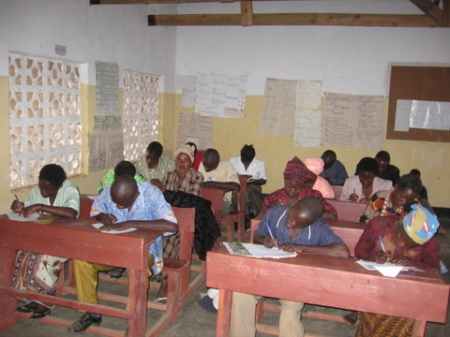

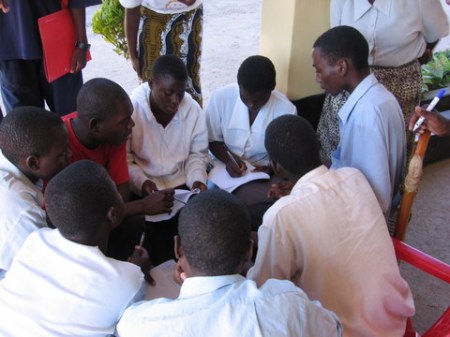
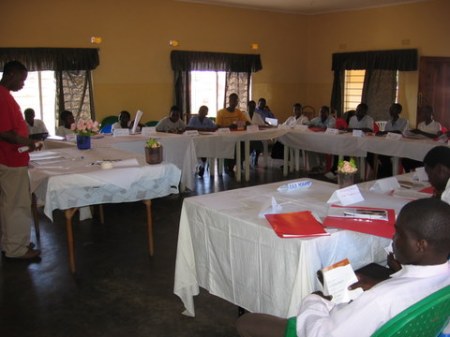
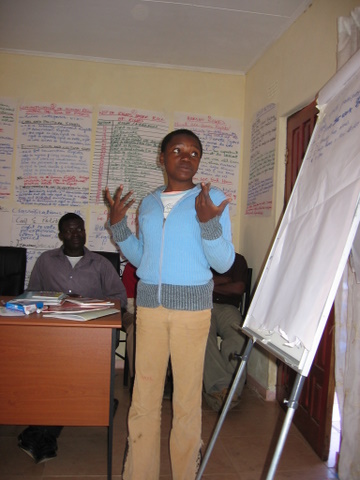
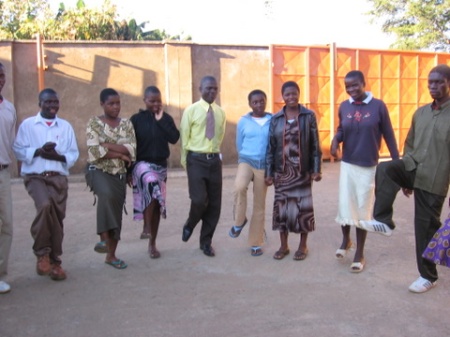
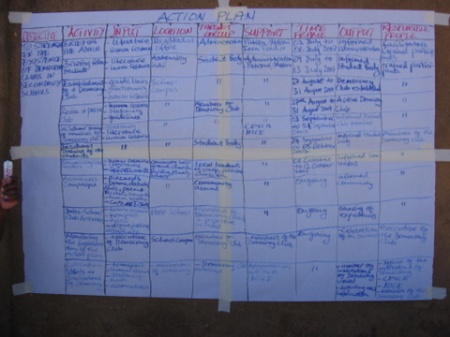
July 14, 2007 at 11:04 am
Hi Son:
Will think things over and see what I can come with. But, just to let you know, you have to think positive, and hope for the best. It always happens, while trying to fix one problem, you create another.
Thanks for the pictures, it helps to visualize things better.
Love,
Mum
July 16, 2007 at 10:41 pm
Hey Wayne!
Looks like you’ve been quite busy in Malawi, and glad to hear things are going alright.
In terms of your blog post on private development of education in Malawi, I would first ask myself a few questions about the economic dynamic of the country, such as the effectiveness of private sector services over government services in other sectors, and the current quality of services provided by the private sector. It would also include any influence that the private sector may hold on the education provided, including corporate interests, and the general sentiment of Malawians in the uptake of privatized education. Only then could I personally answer the question of weather private development of education should exist, so like you, I have little evidence to go either way. Hope this helps in some way.
As for your e-mail about some questions us folks at home would like to ask, I would like to ask Malawians how they view the West’s aid and their development efforts over the years and it’s effectiveness (such as Live Aid/8, G8 Summits, World Bank, etc.), and China’s new influence in Malawi/Africa. In addition, I’d like to ask how Malawians best feel how to solve the developmental problems that currently exist in their own country, and Africa as well. I hope these questions are legitimate enough to be answered.
All in all, I hope you enjoy the rest of your stay in Malawi, and I’ll see you back in September!
Cheers,
Ed
September 11, 2007 at 1:15 pm
Hay, can you answer my question?
In Malawi do they speak english or do they have there own native language?
And what is there Major Export and how are they helping them?
September 25, 2008 at 1:40 am
[…] much work lies ahead. It will be riddled with new challenges, and will be very different from my work in Malawi. Still, I’m excited to be working so closely with rural farmers. I’m excited to explore […]